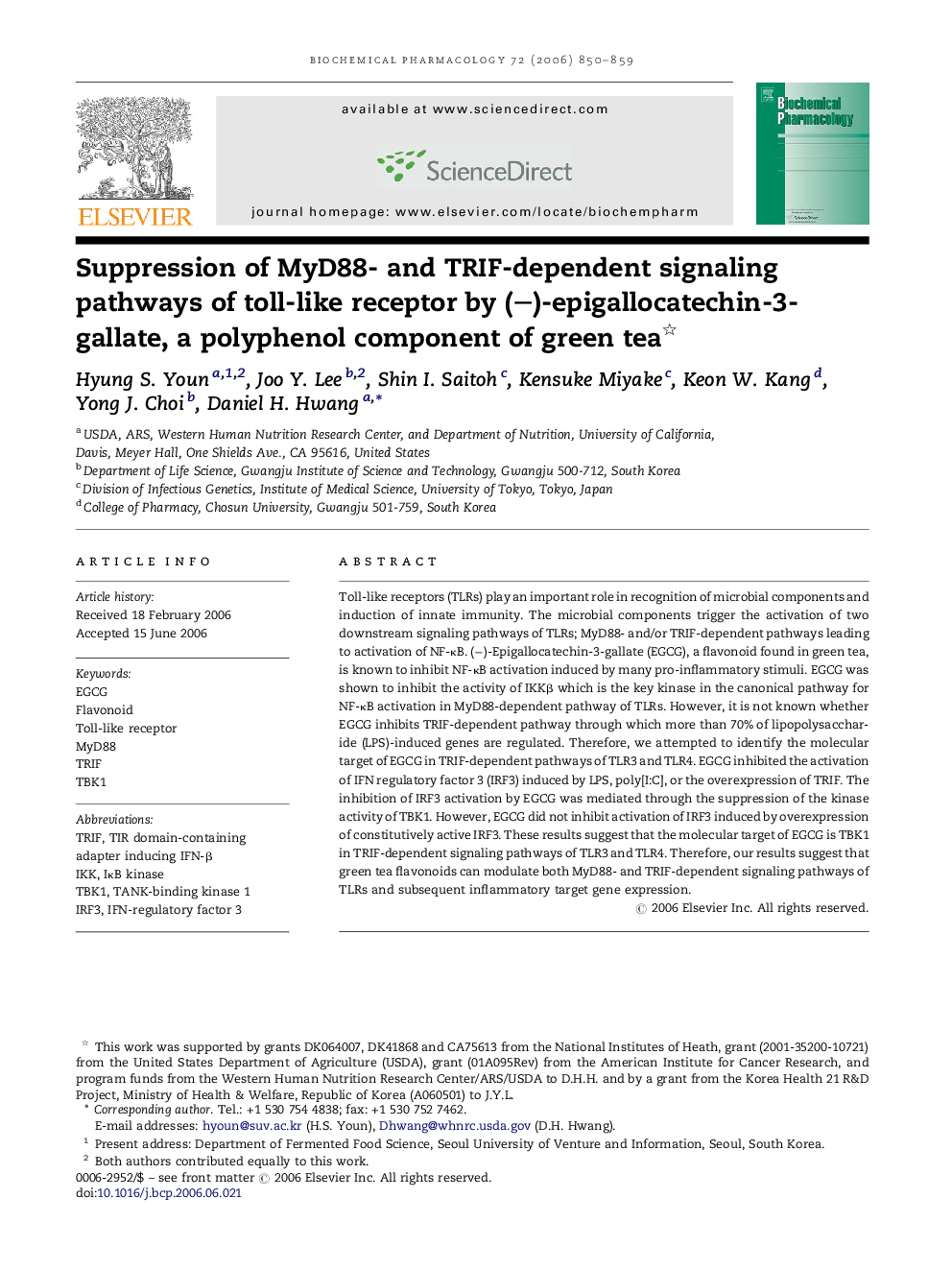| Article ID | Journal | Published Year | Pages | File Type |
|---|---|---|---|---|
| 2515042 | Biochemical Pharmacology | 2006 | 10 Pages |
Toll-like receptors (TLRs) play an important role in recognition of microbial components and induction of innate immunity. The microbial components trigger the activation of two downstream signaling pathways of TLRs; MyD88- and/or TRIF-dependent pathways leading to activation of NF-κB. (−)-Epigallocatechin-3-gallate (EGCG), a flavonoid found in green tea, is known to inhibit NF-κB activation induced by many pro-inflammatory stimuli. EGCG was shown to inhibit the activity of IKKβ which is the key kinase in the canonical pathway for NF-κB activation in MyD88-dependent pathway of TLRs. However, it is not known whether EGCG inhibits TRIF-dependent pathway through which more than 70% of lipopolysaccharide (LPS)-induced genes are regulated. Therefore, we attempted to identify the molecular target of EGCG in TRIF-dependent pathways of TLR3 and TLR4. EGCG inhibited the activation of IFN regulatory factor 3 (IRF3) induced by LPS, poly[I:C], or the overexpression of TRIF. The inhibition of IRF3 activation by EGCG was mediated through the suppression of the kinase activity of TBK1. However, EGCG did not inhibit activation of IRF3 induced by overexpression of constitutively active IRF3. These results suggest that the molecular target of EGCG is TBK1 in TRIF-dependent signaling pathways of TLR3 and TLR4. Therefore, our results suggest that green tea flavonoids can modulate both MyD88- and TRIF-dependent signaling pathways of TLRs and subsequent inflammatory target gene expression.
